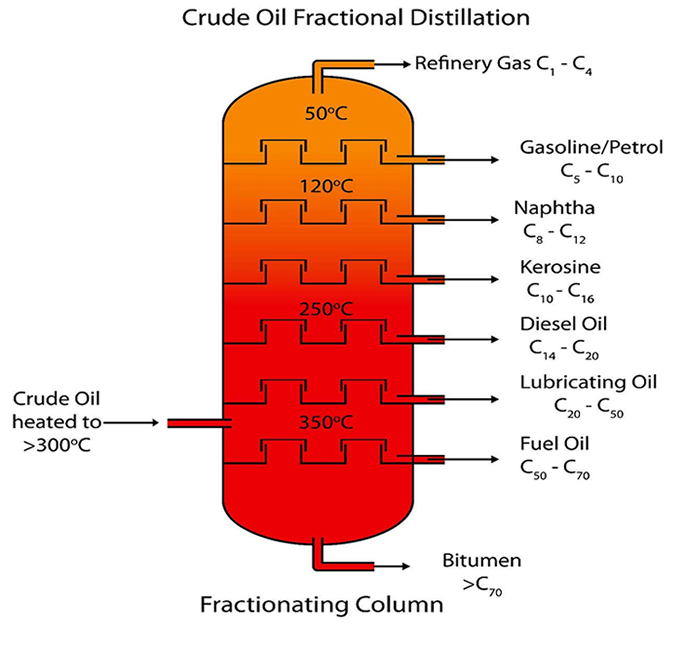1.Being contaminated by foreign impurities
Oil is most susceptible to soiling by various mechanical impurities during system use. These impurities are metal scraps, dust, sand, fibrous matter, and the like. This is because the metal powder that has been rubbed off on the friction mechanism falls into the oil, or the dust and sand are immersed in the oil due to the tight sealing of the system and the machine casing. For example, when a tractor is working in a field, when the car is driving on the road, there will be a lot of fine dust and sand that will be carried along with the air through the air filter into the engine’s lubricating oil. Mining machinery is often soiled by ore powder. The lubricating oil used in machine tools and hydraulic fluids used in hydraulic equipment are often contaminated by the chips and other metal powders of the workpiece. These impurities have a very bad effect on the quality of the system oil. It will cause mechanical heating like abrasives, causing premature wear of the parts.
2. turbid by water
When oil is used in mechanical equipment, water infiltration often occurs. This is because the lubrication system, hydraulic transmission system, or water cooling device of various mechanical equipment is not tight enough to allow moisture to flow into the oil. In addition, the moisture contained in the air can also be absorbed by the oil because the oil is water-absorptive, and the water absorption is determined by the ambient temperature. For example, the dissolved moisture of the transformer has a lot to do with the temperature of the transformer oil.
3.thermal decomposition
There are many kinds of oils, when it comes into contact with the hot parts of mechanical equipment, for example, in the combustion zone of the engine fuel, when it is in direct contact with the red hot metal during quenching, and when in direct contact with the high-voltage arc in the oil switch, it will suffer extreme local overheating until partial combustion occurs and the oil can be heated to a relatively high temperature. At this time, the oil undergoes thermal decomposition (cracking), which results in the formation of colloidal and hard coke, which is called coke. Coking is a great hazard to automobile engines because coke is a poor conductor of heat, and the walls of the combustion chamber and the top of the piston cover the carbon deposits, causing poor heat dissipation, which causes accidents such as overheating and destruction of the parts.
4. oxidation
The main cause of chemical changes in the use of system oil is the role of oxygen in the air. When the oil is working in the equipment, as the oil temperature increases, the contact time increases, the contact area increases, and the contact pressure with the air increases, the oxidation degree of the oil is accelerated and deepened. As a result of the oxidation, the oil produces some harmful substances such as acids, gums, asphalt and the like. As the oxide in the oil increases, the color of the oil becomes darker, the viscosity increases, and the acid value increases. Precipitated sludge appears in the oil, so the amount of impurities in the oil increases. Oxidation of oil often causes malfunctions in system operation.
5.diluted by fuel oil
Lubricants and aviation lubricants of automobile tractors, during the operation of various internal combustion engines, partially dilute the lubricating oil because some fuel oil (diesel, gasoline) does not completely burn and seep into the lubricating oil.
The extent to which the lubricating oil is diluted by the fuel oil is related to the structure and operating conditions of the engine and the type of fuel oil. In the waste aviation lubricants, the average contains 2% to 3% of aviation gasoline, and in the waste vehicle lubricants, the average contains 10% to 15% of motor gasoline. It contains an average of 30% to 50% of tractor kerosene in tractor lubricants. It can be seen that if the fuel oil used in the engine has a higher flash point, the amount of fuel oil that is infiltrated into the lubricating oil is increased, and the lubricating oil becomes more diluted. This will reduce the flash point and viscosity of the lubricating oil and lose the proper lubricating properties.
The amount of undesirable impurities produced by the oil in the system work is not allowed to increase indefinitely. When it reaches a certain level, it can not meet the requirements of the system for oil, so the oil becomes a scrap oil and needs to be replaced. If it is not replaced, continue to use, it will accelerate the wear of moving parts, and cause the system to malfunction, reducing the service life of the equipment.
How to determine whether the oil should be scrapped is a more complicated problem. Because of the different conditions of use, the requirements of various mechanical equipment for oil need to be determined according to the actual use.

